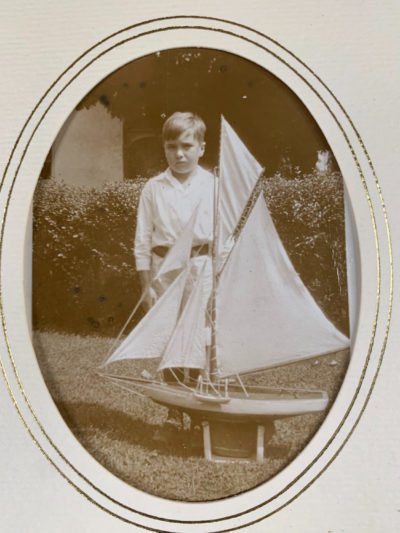THE OLDER I GOT, THE MORE I SEARCHED FOR MY FATHER
My father had a long history of heart problems, so when he died from a massive coronary at age 67, it was unexpected, but hardly surprising.
I was only 26 at the time, and what did surprise me were condolences I received from two close friends, both of whom used the same word to describe my father. They wondered how was I dealing with the loss of a parent who had been, well, “difficult?”
I’d never attached that particular word to my father — at that young age, I lacked the perspective — but their naming it brought instant, almost palpable relief. My father was, indeed, a difficult man.
The author and her parents, 1959. (Courtesy)
The author and her parents, 1959. (Courtesy)
Grouchy and impatient, Dad had a remarkably short fuse. His constant griping reminded me of the 70s TV character Archie Bunker. The country was being run by fools. Massachusetts drivers were idiots. The younger generation showed no respect.
Childcare in our family was my mother’s domain. In the 30 years in which my parents raised three daughters, from 1942 to the mid-70s, my father didn’t hug, cuddle or read bedtime stories. When I was old enough, the lessons Dad offered me on throwing a softball or driving our standard-shift VW Beetle invariably ended badly. “Snap your wrist!” he’d shout. “You let up on the clutch too fast!” His ceaseless correction left me in tears.
As I grew into an opinionated young adult, Dad and I argued about politics. A staunch conservative who believed Richard Nixon was hounded from office, he infuriated me by opposing the Equal Rights Amendment because he “didn’t want me to go to war.” I’d respond, “I’m confused. Would you want me to go to war if I were a boy?”
Like most of our arguments, it went nowhere.
When Dad died, I was too young to appreciate anything but our differences. He hadn’t been the father I wanted, and I hadn’t been the daughter he wanted. End of story.
The author’s father with his parents as they emigrated to the United States from Glasgow, 1926. (Courtesy)
The older I got, however, the more I searched for him. I knew my father loved me, though he struggled to show or express it. I longed to understand what made him who he was. I didn’t have much to go on. My father had never been a storyteller, and his peers were long gone. My sisters and I have worked to piece together what little we know.
Like me, my father was a late-in-life child. The youngest of three boys, he was born in 1919, just after World War I. His parents were older, in their early 40s, unusual for that time. Were they overwhelmed? Unaffectionate? Hard on him? At age 7, he emigrated with them across the sea in an enormous ship, from Glasgow to Ellis Island. I have to believe that journey was terrifying for a nervous, small boy.
The author’s father, Matthew Cochran, age 7, in 1926, Glasgow, Scotland (Courtesy)
I have two pictures of my father as a child. In a family passport photo, he hovers behind his seated parents in an ill-fitting wool suit, his blond hair slicked down, his lips pursed tight, his eyes large and wary. In the second photo, he stands stiffly, arms pressed to his side, behind a model wooden ship with elaborate sails. I expect the ship was a gift, yet his expression is somber, almost cowed, as if he might cry. Was he always so sad?
In his adult life, my father suffered a long series of layoffs, business failures and attempted career pivots that never quite panned out. My mother took a job in a packaging factory to keep our family afloat. No doubt Dad felt frustrated and powerless. He sought to control his world in small ways. He became obsessive about safety. If I had to drive the family car, he’d check it from top to bottom — oil, tires, wiper fluids. Sometimes his worries were over the top. Once, he insisted I tie back my hair before a field trip to a factory, lest it get caught in machinery. From a 2021 perspective, it’s clear Dad suffered from untreated anxiety, though I can also choose to read his worry as an expression of love.
Indeed, if Dad couldn’t express his affection openly, he did it in other ways. He took us on trips to Cape Cod he couldn’t afford. Instead of the simple banana seat bike I requested for my 8th birthday, I got a hot pink one with three gears, hand brakes and streamers bursting from the handlebar grips.
I’ll never enjoy a full understanding of my complicated, difficult father, but I’ve found the search itself has helped.
If I could say something to my dad today, 35 years after he died, I’d tell him I’m sorry I never asked the questions — or shared things — that could have helped us understand each other better.
I’d say, I forgive you, Dad, for not being perfect. I hope you forgive me.
Originally posted on WBUR



